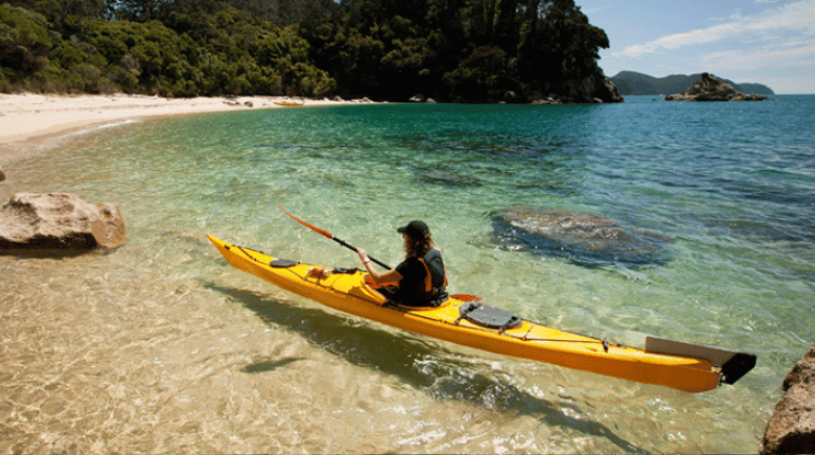He Puna Korikori funding comes to an end
We want to thank everyone who has contributed to the success of He Puna Korikori over the last seven years – from the organisations who received funding and the judges who dedicated their time and expertise (including our passionate rangatahi judging panel!) through to those who participated in an activity funded by He Puna Korikori.
The Tū Manawa Active Aotearoa Fund, which is administered by Regional Sports Trusts, continues to be available to support programmes targeting tamariki and rangatahi.
He Puna Korikori – looking back
He Puna Korikori funding has been used to support programmes across Aotearoa. In turn, these programmes have supported a range of communities to engage in recreation – rangatahi Māori, disabled rangatahi, migrant and former refugee communities, young women, Asian and Pacific rangtahi, and young people from high-deprivation communities.
Over the past four years, He Puna Korikori adopted a Te Tiriti o Waitangi approach, where 50% of the fund allocated to kaupapa Māori organisations and 50% to non-Māori organisations. During this time, $1,602,316.65 has been distributed across 76 organisations through He Puna Korikori. Many initiatives funded through He Puna Korikori have embraced Te Ao Māori and place-based knowledge, enriching the lives of countless young people.
Case study: Harbour Sport - Te Oranga Kaiora
Nurturing Māori Wellbeing through connection, culture and community
Te Oranga Kaiora is a Māori focused, Māori driven initiative by regional sports trust - Harbour Sport. Harbour Sport started ‘Te Oranga Kaiora’ following Iwi consultation in 2020. ‘TOK’ was established to support and empower Māori communities living in the North Shore through physical activity, health and wellbeing; fostering whānaungatanga and reinforcing connections between rangatahi, whānau and Te Taiao.
- Case Study: Harbour Sport - Te Oranga Kaiora (PDF).pdf
- Case Study: Harbour Sport - Te Oranga Kaiora (Vimeo)
Case study: Hei Matau Paddlers
Young women on the rise: A whānau-centred approach
Hei Matau Paddlers (HMP), was started in 2005 by Kelley Korau and Ray Timihou as an all-inclusive, whānau focused, water sports club. In the early 2000’s Waka Ama was a predominantly Māori sport; HMP was a club that welcomed all paddlers keen to give Waka Ama a go, attracting local rafters and kayakers to the sport. Nearly 20 years on, their welcoming ‘vibe’ remains strong at the club, with over 130 members, ranging in age from 5 – 85 years. A big focus of the club is their Rangatahi/Tamariki programme and encouraging Māori to reconnect with their whakapapa through the sport of Waka Ama.
Case study: Hokianga Sports Club
Waves of Resilience: Te Whare o Tangaroa's impact on Hokianga youth
Hokianga Sports Club (HSC) is a hapori Māori-led organisation that was created in 2012, by a group of active parents, who saw a need to provide more sports and recreation opportunities for the community of Hokianga. In 2023, HSC received funding from He Puna Korikori to deliver ‘Te Whare o Tangaroa’(TWoT). This programme is about inspiring rangatahi to explore and connect with the ocean environment, as our tupuna did.
Case study: Mangakino School
Enhancing education through outdoor education and Māori values
Mangakino School, located in a small town near Tokoroa, serves students from years 1-8, all of whom are Māori. Facing challenges such as rural isolation, low economic status, and concerns about attendance, behaviour, and well-being, Mangakino School is undergoing a transformative phase. Under the leadership of new principal Cherie Hill and a revitalised
School Board of Trustees, the school has embraced a community-driven approach to education, supported by funding from the He Puna Korikori fund.
Te Ao ki Te Pō
Rangatahi voices: a Māori Perspective on Recreation
This report presents a tūhuratanga/exploration of Māori-led recreation kaupapa/initiatives supported by funding from He Puna Korikori and delivered by Tāngata Whenua providers for rangatahi Māori.
It focuses on the experiences of rangatahi and aims to illuminate the impact of these programmes on young Māori, showcase the approaches used by Tāngata Whenua programme providers, and identify systemic and institutional barriers that hinder programme/kaupapa delivery and outcomes.

